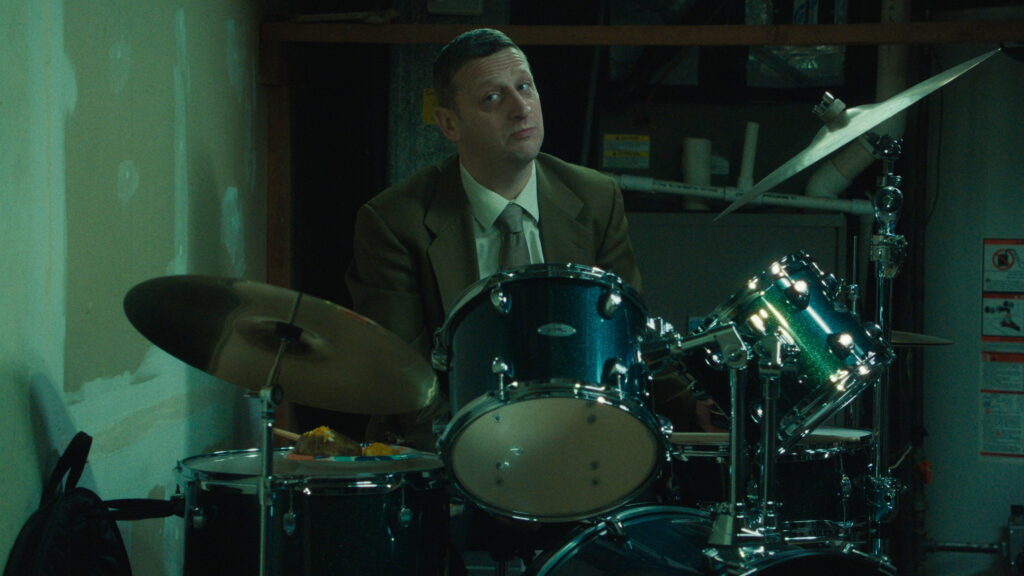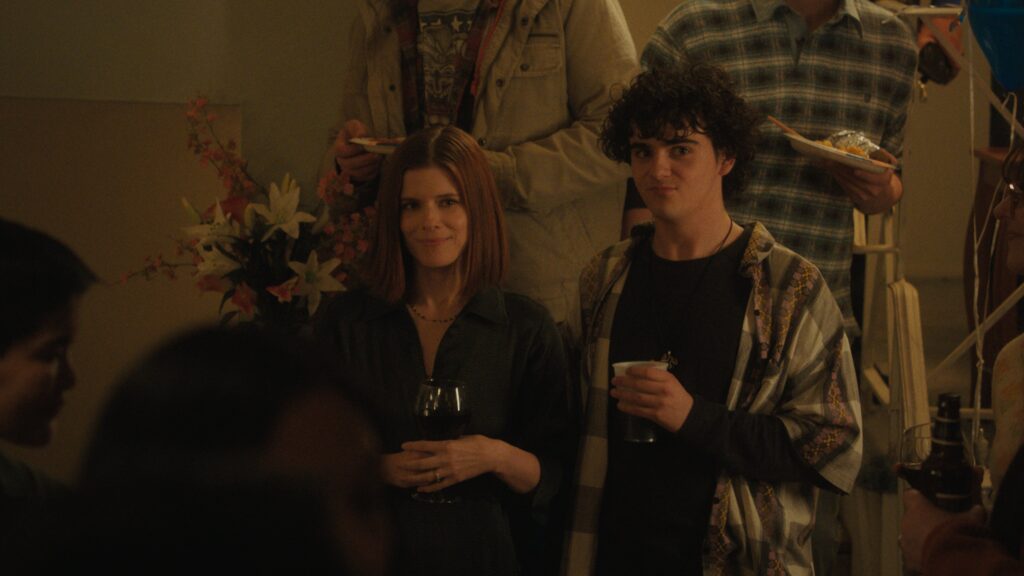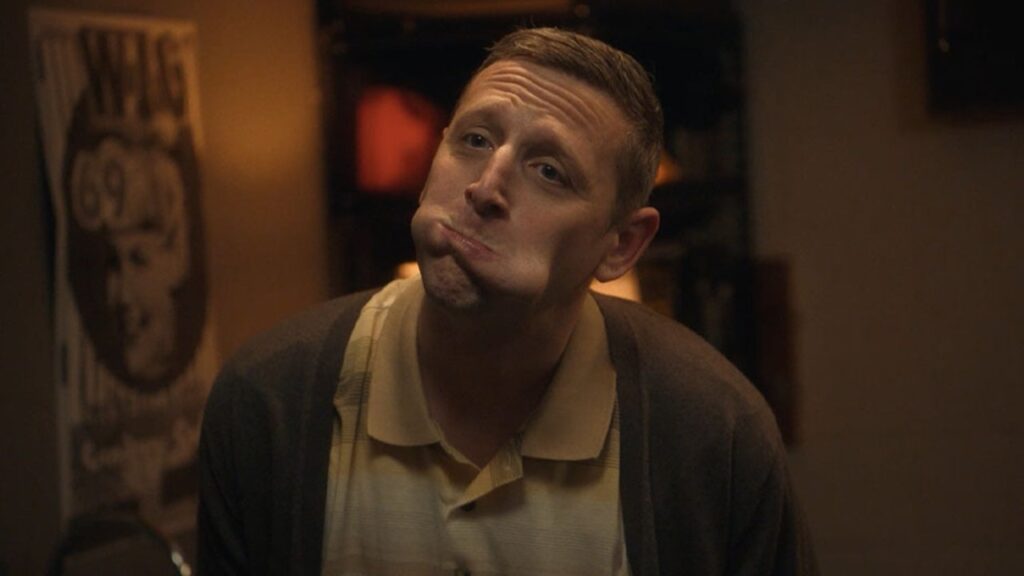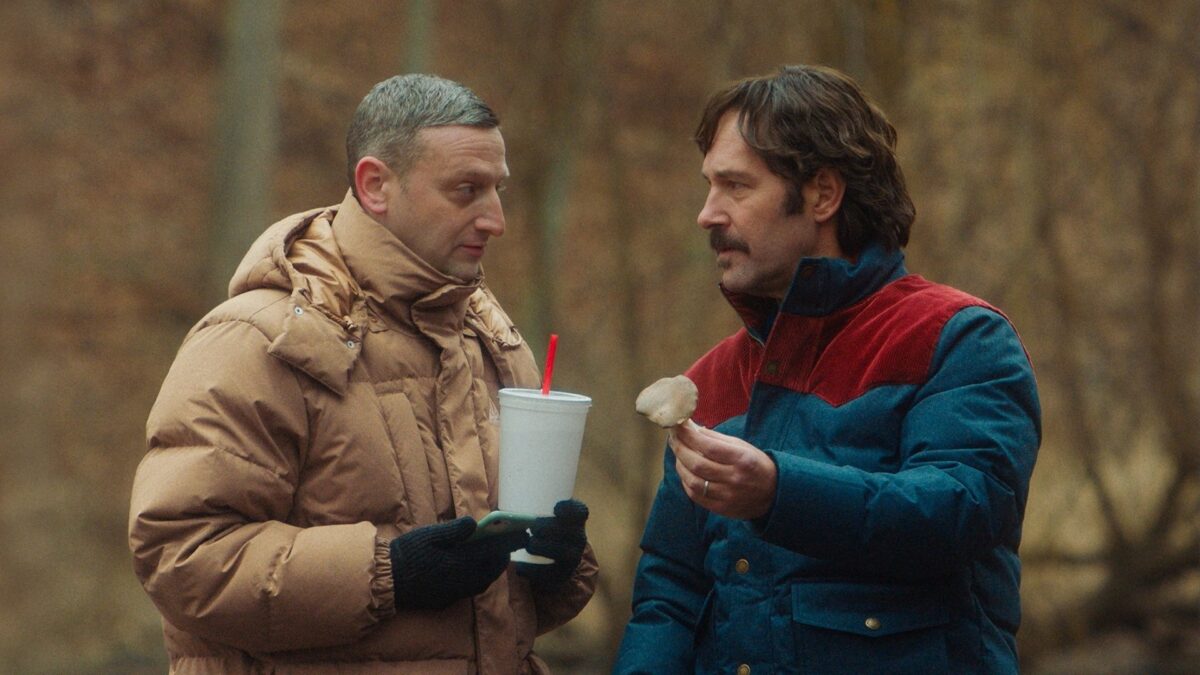I can see the future. And it's full of pals helping pals.
Tim Robinson is having a moment. I Think You Should Leave is one of the most influential comedy shows of the decade so far for reasons that are difficult to articulate. Well, maybe not. It is very funny. But it is funny in ways that are at once the logical evolution of sketch comedy and also a complete left turn from anything else going on in the comedy world. The tone sits halfway towards Tim and Eric absurdism, comfortably occupying the Adult Swim valley. And best of all, the skits almost universally wrap up in under five minutes, with whole episodes clocking in at a breezy 15–20 minutes.
Many of I Think You Should Leave’s best skits take common scenarios of slight social awkwardness — like a baby crying the moment you hold it, or whispering about a coworker’s bizarre fashion choice behind their back — and escalate them to absurd and hysterical extremes.
Friendship, Robinson’s first-ever starring role in a feature film, isn’t made by the creative staff of I Think You Should Leave, but it might as well be. It fully embraces the same comic mission and style, allowing Robinson to deploy many of his best comedic tools — especially his trademark frantic attempts to pretend everything is fine when things clearly aren’t; and its converse, melting down when everyone else is keeping cool — to terrific effect.

Written and directed by Andrew DeYoung in his theatrical debut, Friendship is released by A24 and carries several hallmarks of the A24 house style: an intense, thrumming score, hallucinatory editing — including a memorable paranoid drug trip in the film’s second half, the funniest moment of the film for me — and an overall aesthetic of pop-surrealism. Yet, given its low-stakes core premise — will Robinson’s character manage to befriend his neighbor? — the whole affair plays out like a brilliant parody of elevated genre filmmaking deployed in the likes of Opus, Death of a Unicorn, Hereditary, and whatever other thrillers your favorite mid-major indies are pumping out these days.
The film follows Craig Waterman (Tim Robinson), a socially awkward marketing executive feeling adrift amid marital strain after his wife Tami (Kate Mara) recovers from cancer. Craig becomes infatuated with his new neighbor, Austin Carmichael (Paul Rudd), a charming local weatherman. What begins as an endearing and relatable quest for friendship soon spirals into a stress nightmare as Craig humiliates himself in front of Austin’s friend group at a hangout. Craig’s desperation for acceptance kicks off a psychotic spiral that pushes him into some outrageous scenarios.
Pretty much every aspect of Friendship executes on its ambitions. It has the same slight bent of heightened reality of I Think You Should Leave, a surfeit of great gags and memorable lines, and a gnawing sense of social discomfort adding punch to every moment. What surprised me, though, is just how distressing the experience of watching the movie is: In stretching its social awkwardness out to feature length, as opposed to jumping to a new skit every five minutes, you’re trapped in the agony of the Robinson’s socially inept yet sympathetic doofus.

Friendship just grows funnier and more bizarre as Craig’s life implodes, culminating in a catastrophic final few minutes, all driven by his desperate desire to earn Austin’s respect. The film captures so many brutal, relatable sensations with hysterical precision bordering on horror: the feeling of not quite fitting in with a circle of new acquaintances that have their own shared history; desperately trying to maintain social standing in a crowd as it slips away; feigning a more interesting persona than you feel; and coveting approval from a colleague with the intensity usually reserved for romantic crushes.
Many scenes are individually hilarious sketches, too, of course. Take, for a moment, the buildup, pacing, and execution of Craig’s efforts not to get sick in a mall after consuming wild mushrooms with his son. The moment unfolds in perfect comedic rhythm, increasingly sweaty denials of sickness punctuated by non-sequiturs (“Did you see that guy on the pig? He was flying!”), before giving us the barfing punchline at the exact right moment. Friendship is likely to reward repeat viewings, as each set piece is a polished, miniature comic triumph.

The cast is uniformly excellent. While Robinson is undoubtedly the film’s linchpin, Rudd is in his wheelhouse, channeling the slightly acidic tone of Wet Hot American Summer. Mara offers an effective foil as the skeptical wife, and Jack Dylan Grazer excels as Craig’s teenage son navigating his own awkward relationships. Conner O’Malley provides a couple of scene-stealing moments, delivering what has become the film’s most memed quote (”I’ll just end it on this: We should still be in Afghanistan”). My one big disappointment is missing a cameo from I Think You Should Leave breakout Patti Harrison, which would have been icing on the cake.
I had high hopes that Friendship would be an instant classic. While it doesn’t quite reach that higher comic plane I prayed for, it’s still one of the more original and enjoyable comedies in recent memory, perfectly showcasing what makes Tim Robinson one of the best working comedians. I suspect I’ll rewatch it someday soon, and I can only imagine this rating going up from here.
Is It Good?
Good (5/8)
Dan is the founder and head critic of The Goods. Follow Dan on Letterboxd. Join the Discord for updates and discussion.


4 replies on “Friendship (2024)”
Wow, this for sure reads more enthusiastically than I’d associate with a 5/8!
It’s definitely on the line between a 5 and a 6 for me! I wanted to give it room to grow over time.
Lost it during the apology scene. Just trying to figure out the combination of childhood punishments that led to him delivering that was a hoot.
Also, for whatever reason, any Tim Robinson bit gets better for me on a second viewing. Even the ones I thought were misses I kind of come around on.
That’s a good point. Can’t think of a ITSYL sketch I liked less the second time through. That’s probably a good reason for me to give Friendship a second go-round.